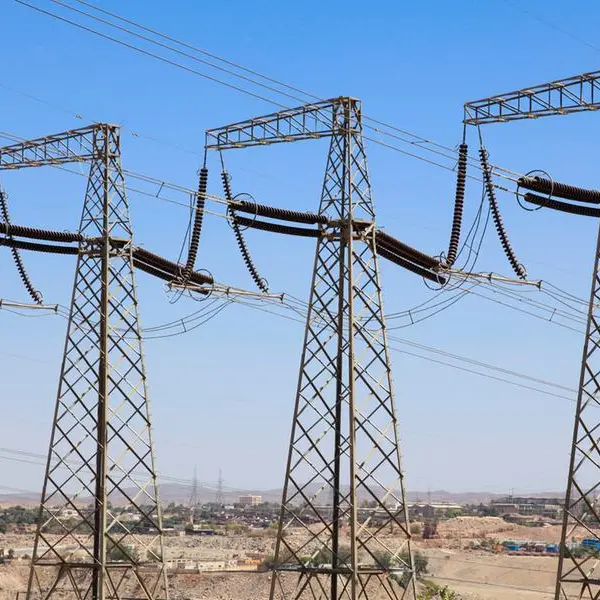PHOTO
DUBAI - Ohood bint Khalfan Al Roumi, Minister of State for Government Development and the Future, stated that climate change is a threat to all governments, as it affects the social and economic sectors, and public servants will need to adapt their roles to respond to the challenge.
Al Roumi's note came during the roundtable entitled “Building climate capable governments,” organised among the activities of COP28-UAE by the Government Development and the Future Office in partnership with Apolitical, the Bezos Earth Fund, and C40 Cities.
Al Roumi noted that acquiring new skills is the key to closing the green government skills gap and promote sustainable practices in order to reach the goal of green governments in all sectors.
The roundtable also witnessed the launch of the Green Capabilities Global Alliance for Government, a platform to support government efforts in upskilling employees to drive environmental sustainability and climate change resilience.
This step comes in cooperation between the UAE government - represented by the Government Development and the Future Office-, and Apolitical. It aims to highlight the critical role of government employees in shaping and implementing climate policies, as data from Apolitical showed that 8 of every 10 government employees worldwide do not have the necessary tools or training to address climate change.
Al Roumi commented, “The Green Capabilities Global Alliance for Government is a global platform that unites cooperation efforts aiming to close the green skills gap globally by enabling Alliance member governments to integrate climate and environmental skills into their government skilling programs. By doing so, governments will be able to enhance the green skills of public sector employees and ensure seamless exchange of innovative training best practices.”
“The UAE government believes that every government employee has a responsibility to join climate action, and we understand the need to invest in green skills as a main pillar to foster effective climate action. This year, we have launched the sustainability track on “Jahiz” to enhance the readiness of government employees and hone their future skills. The new track focuses on climate change, net zero, and the circular economy. These programs were mandatory for more than 50,000 UAE government employees, reflecting our commitment to this cause,” she added.
She pinpointed that “Jahiz” awarded more than 250,000 badges in green skills, transforming government employees into partners in effective climate action. She further noted that the launch of the Green Capabilities Global Alliance for Government resonates with the UAE’s commitment to enhance government sustainability, as acquiring green skills is no longer an option, but rather a necessity to move forward towards the future. The minister invited the governments in the room to be among the founding members of the Alliance and for called upon governments worldwide to join the Alliance to help transform every government employee into a climate action partner, thus making a remarkable effect in combating climate change.
The roundtable participants discussed the importance of encouraging governments to lead the efforts address the impact of climate change, in addition to building agile governments capable of dealing with climate change. They further showcased the leading governments’ experiences, in training government employees on green skills. And delegates from seven governments and organisations across the UAE, USA, UK, Brazil, South Africa and Canada shared pledges in climate capability building demonstrating their deep commitment to invest in their workforce’s green skills.
In his speech, Andrew Steer, President and CEO of the Bezos Earth Fund, tackled the need to build governments’ capabilities in dealing with climate change as a key tool for driving climate action under such critical circumstances. He also highlighted the importance of urging NGOs to support governments in expanding the scope of climate and environment-related training.
Andrew Steer emphasised the importance of improving the capabilities of government employees and providing them with environmental knowledge across different sectors. He noted that this is essential for formulating impactful policies aimed at reaching Net Zero goals.
Ana Toni, National Secretary for Climate Change, Ministry of Environment and Climate Change, Brazil, expressed her country’s commitment to leading climate action as a global role model by pledging to avail sustainability and climate-related training to all government employees.
Ana Toni highlighted that Brazil's government prioritises tackling climate change, focusing on reducing its effects and addressing the challenges it presents. She pointed out that this responsibility is distributed among 23 ministries. As a part of their strategy, the National School of Public Administration has integrated climate change into its curriculum to ensure that government employees are well-trained in sustainability. This training is crucial for implementing both current and future governmental strategies. Furthermore, she mentioned the importance of developing skills at the federal, local, and municipal levels to ensure a thorough preparedness for dealing with environmental issues.
CEO and co-Founder of Apolitical Robyn Scott stated, “The need to close the government ‘green skills gap’ is urgent. We know from Apolitical’s 2023 global Government Green Skills Survey that 65% of public servants say they have not received any climate training and 73% say they would benefit from it. That’s why pledges from these governments today are a critical accelerator for climate action.”
Several topics were tackled in the meeting. Gillian Caldwell the Chief Climate Officer of the United States Agency for International Development (USAID) spoke about the importance of building the capacities of public employees to drive climate action and Wade Crowfoot, California's Secretary for Natural Resources, stressed the need for fast, comprehensive, and effective implementation of climate strategies, emphasising the pivotal role of personnel in this process. He advocated for the expansion of climate education beyond environmental ministries to encompass all levels of administration, underlining its significance in achieving broader climate goals.
Also, concrete pledges towards government green skills capacity building were made. In addition to the UAE’s commitment to launching and leading the Green Capabilities Global Alliance for Government in partnership with Apolitical, an initiative for introducing climate and sustainability training to all new government employees was announced by Dr. Ilse Trautmaan, Deputy Director General of Agricultural Research and Regulatory Services in the Western Cape government, South Africa. Also, from South Africa, Mayor of Tshwane, Cilliers Brink committed to train all government teams to embed climate budget considerations across every possible policy, strategy, plan and project. Mamadou Biteye, Executive Secretary, the African Capacity Building Foundation, which incorporates 40 governments across Africa, shared their pledge to provide civil servants from relevant ministries, departments and administrations in African governments with the required climate and nature skills to develop bankable and impactful projects.
Debbie Palmer, Director of Energy, Climate and Environment at the Foreign, Commonwealth & Development Office (FCDO), UK, focused on the need to involve diplomatic personnel in climate and nature skills action. Assistant Deputy Minister Sandra Mccardell from Environment and Climate Change Canada pledged to provide climate literacy training to 30,000 federal public servants in advance of COP29 while Mayor Mike Savage from the Halifax Regional Municipality announced the implementation of HalifACT, an ambitious climate mitigation and adaptation plan that will deliver mandatory new training in 2024 to empower staff to take climate and environment action in their daily lives and in their work and that will implement a governance model to drive climate action across the organisation.





















